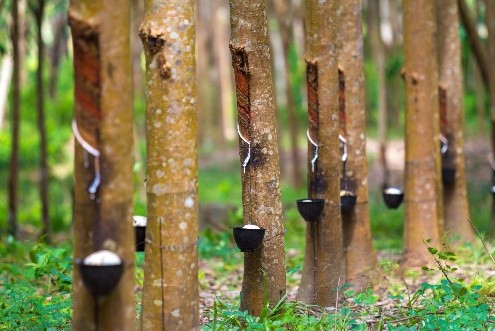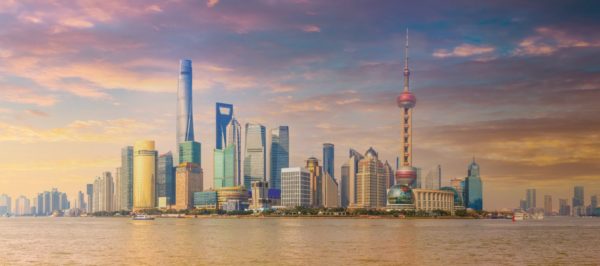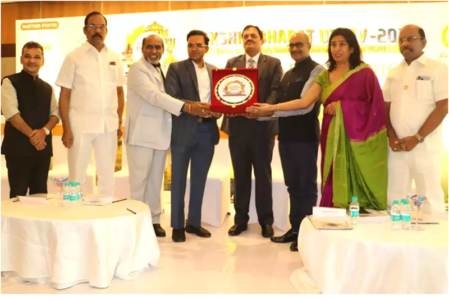By Vivek Narayan, Kottayam, June 19:
In a major attempt to promote natural rubber-based ancillary industries in Kerala, the central and state rubber board will build an integrated facility and industrial complex in Kottayam. The decision comes at a time when the necessity and demand for promoting rubber-based products and thereby benefitting the small-scale farmers in the state who are already on the receiving end due to the low prices of natural rubber.
The main aim is to ensure that the primary stakeholders – the small-scale farmers and planters are able to associate with the initiatives implemented by the industrial cluster where the raw materials required for manufacturing the products can be provided by the farmers and to enable the farmers with new technology and skills.
Kottayam Rubber Complex
“We are in the process of completing an industrial complex and an integrated facility in Kottayam in line with the Rubber Park that is already doing well in this sector. This is to ensure that the rubber products that are manufactured locally are being encouraged and marketed in the market outside the state and the country. There will be a separate research and development centre in the complex, a testing and quality control centre and a training centre for those farmers who are planning to learn more skills as per the new requirements and demands of the industry as a whole. We are planning to upgrade the Rubber Producers Societies (RPS) currently active in the state”, said M. Vasanthagesan, Executive Director, Rubber Board, Kerala in an exclusive interaction with CMR.
The industrial complex and the associated units will be built on the land earmarked for ‘Kerala Rubber Limited’ in Kottayam on 164.86 acres of land. The first phase of the project includes the development of 62.54 acres of land, road networks, electrical installations, drainage systems, water supply and the construction of 1) Research and Development Centre, 2) Testing and Quality Control Centre, 3)Training and Information Centre, 4) Business Incubation Centre, 5) Rubber Products Exhibition Centre, 6) Warehouses, and 7) Employee hostels.
Vasanthagesan added “that there is a demand for the latex that is extracted for Non-tyre industries and the rubber board is planning to strengthen the industry by introducing more schemes and clusters in the coming days. Our aim is to ensure that the small-scale rubber farmers who are under financial stress get benefited through these schemes and new initiatives”.
Rubber Farmers’ Struggle Continues
The government on the one hand continues to assure better prices and market outreach to the small-scale farmers, however, the underlying issues and concerns of the six lakh farmers in Kerala are ignored as the main demand of the farmers is to increase the base price to Rs 300 per kilogram. High wages, low prices, uneven weather conditions, and rising imports have made the situation of rubber farmers worsen over the past 12 years.
The import of rubber has increased beyond 5 lakh metric tonnes in recent years due to the Centre’s policy, leading to a massive fall in the price of local rubber. The Rubber Board’s lack of support in the form of subsidies has further burdened farmers.
“The small-scale and large-scale rubber farmers are struggling mainly due to the low prices of natural rubber in the local market. Over the years the labour costs have tripled and the imports have also risen manifold leading to farmers slowly moving out of rubber cultivation in the state. For the plantation to sustain the base price should be fixed anywhere between Rs 250 and Rs 300 per kilogram or else it will be difficult to even continue with the cultivation”, said Divakaran Nambiar, Kanhangad Rubber Board Director and a Planter based in Kasaragod.
The production of natural latex rubber has been decreasing with Kerala’s contribution to the national rubber production plummeting below 75% for the first time during 2021.
Cultivated on 21.8% of the land, rubber is Kerala’s most important cash crop after coconut in the state. Though productivity has slightly increased, the area under cultivation reduced from 5.51 lakh hectares (ha) in 2017-18 to 5.50 lakh hectares in 2021-22.
“There are widespread deliberations and discussions going on over the increase in the base price and the central government is well aware of the situation on the ground. The talks are progressing in the right direction and we are positive about the entire deliberations. However, it is up to the government at the centre and its lawmakers to decide on the base price issue and subsidies to be provided”, said M Vasanthagesan.
Currently, the price of natural rubber in the market is Rs 155 per Kilogram. In 2011, the price of rubber was Rs 245 per kilogram in the market.
Rubber Cultivation Extending to The NE Region
Meanwhile, the Central Government and the Rubber Board are working on an ambitious plan to expand rubber cultivation to six northeastern states including Assam, Tripura, Meghalaya, Mizoram, Nagaland and Himachal Pradesh. As per top sources within the board, the central rubber board plans to cultivate rubber in 2 lakh hectares of land that have already been earmarked. The mission is expected to be completed by 2026.
The mission is also expected to mitigate the demand for rubber in the automobile industry where the raw material is an unavoidable component.
Currently, the initiative is implemented by the rubber board with the support of ATMA (Automotive Tyre Manufacturers Association).
As of today, the total production of natural rubber is 8.5 metric tonnes per year. However, India still imports 4.5 metric tonnes every year.
The large-scale rubber cultivation in north-eastern states will also help in enhancing rural employment and thereby helping to curb armed insurgencies in conflict zones.













